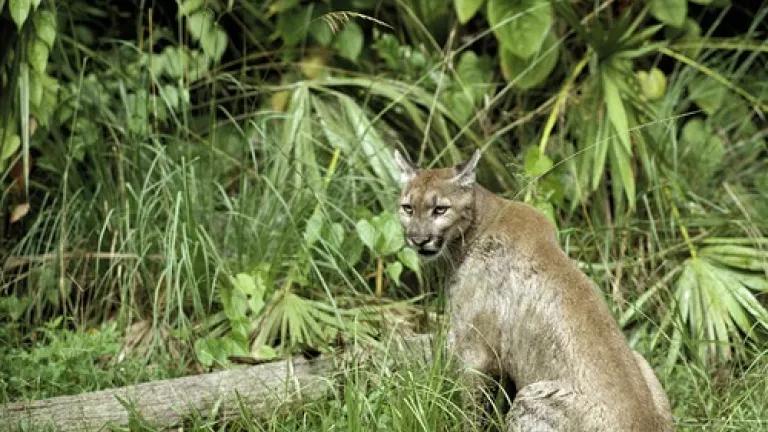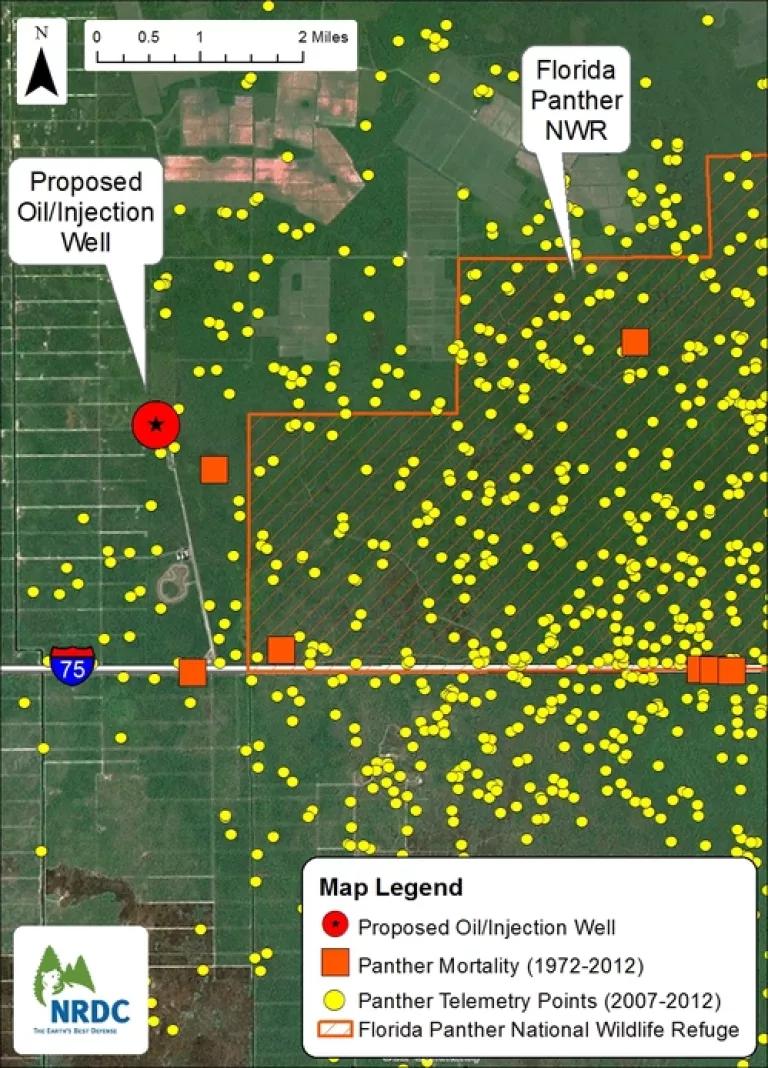
Photo credit: U.S. Fish and Wildlife Service
NRDC is very concerned that this wastewater disposal well would be located in prime habitat for the Florida panther--a very endangered species. The panther is so endangered, with perhaps only 100 individual panthers still in existence, that the Florida Fish and Wildlife Conservation Commission has stated that “every individual is important for the panther’s survival.” Yet the oil and gas industry wants to turn this prime habitat into a dirty and dangerous oilfield. This proposed waste disposal site would threaten Florida panthers by: dramatically increasing vehicle traffic in the area with hundreds of truck trips, creating noise and light impacts that can disrupt panther habits, and leading to more human activity and other impacts. The map below illustrates locations of panthers documented by telemetry, sites where panthers have been killed by vehicles, the proposed wastewater disposal well site, and roads that trucks would travel that are right in the midst of panther habitat.

Map created by Matthew McKinzie
The waste that will be injected may be very toxic – but no one will know how dangerous it is because there are no requirements that the contents be disclosed. Oil and gas wastes have been shown to contain toxic substances which endanger both human health and the environment, but Congress exempted them from federal hazardous waste law back in the 1980s. Because of this loophole, oil and gas waste disposal wells aren’t built to standards needed to protect underground sources of drinking water from hazardous waste--regardless of how toxic the waste may be.
Compliance with the rules for these types of disposal wells is very poor. An investigation by the news outlet ProPublica found more than 1000 serious violations nationwide, and concluded that “fundamental safeguards are sometimes being ignored or circumvented." ProPublica also reported that the EPA staff that is charged with enforcing the law in Florida employs very few people to inspect these wells.
The Florida Panther was designated Florida's State Animal in 1982, and a national wildlife refuge was established for the panther in 1989. But panthers don't read maps and also venture outside the refuge on a regular basis. It's a critical time for the survival of the species, but nevertheless the oil and gas industry is eager to push ahead and put profits ahead of panthers.
The Endangered Species Act requires EPA to consult with the U.S. Fish and Wildlife Service to ensure that permit approval will not jeopardize the continued existence of any listed species. EPA needs to take the full scope of potential impacts on the panther population into consideration and consult with the U.S. Fish and Wildlife Service as required by law.
In addition, there are important sources of drinking water near the site, but the EPA hasn’t fully assessed the risks posed to drinking water by the proposed injection well.
For all these reasons, NRDC opposes this injection well and urges EPA to deny the permit.

